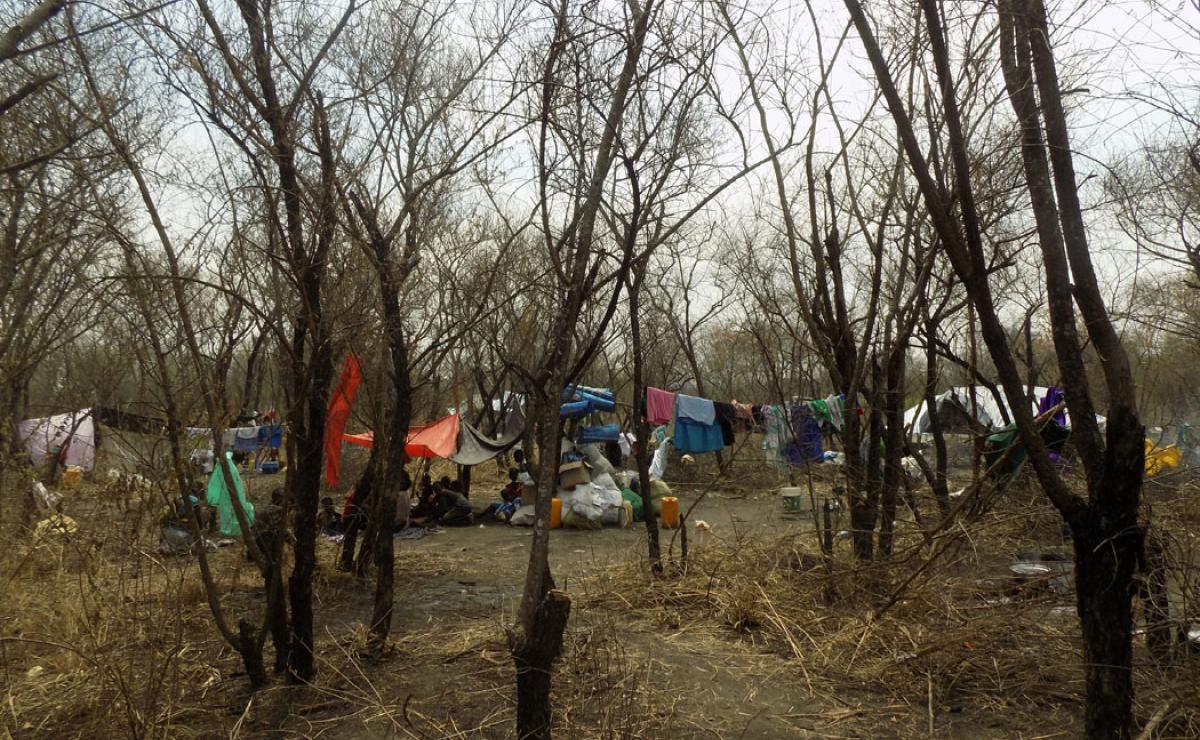Searching for safety

South Sudanese refugees report atrocities when arriving in northern Uganda
10 February 2017 (LWI) - “We flee during the night because then it’s dark, and we can hide from the blood-thirsty fighters,’’ says Lawrence Lumugun, a South Sudanese refugee in Palorinya refugee camp, northern Uganda. “With our children, we walk through warzones, seeking a safer place we can call home.”
Lumugun is one of the thousands of South Sudanese refugees who are received by The Lutheran World Federation (LWF) in Northern Uganda every day. As the war in South Sudan intensifies, they leave their country for the safety in Uganda and other neighboring states.
At the same time, in neighboring countries the response to the refugee influx falls far short of minimum humanitarian standards, due to the overwhelming numbers. On 1 February the number of daily arrivals reached a new peak with 3,537 people being registered at the Palorinya settlement, Moyo district. A total of 17,640 arrived in the first week of February, according to LWF staff.
Human rights violations
While UNHCR transports most of the refugees at the Uganda - South Sudan border, some trek to the transit routes and collection centres. Hungry and tired, needy South Sudanese refugees are received, screened and given hot meals by LWF, in partnership with other humanitarian organisations.
Those who arrive at the Palorinya settlement report atrocities and severe human rights violations. “We are among the few lucky ones that have arrived safely at the settlement. Some of our family members and friends were killed on the journey,’’ Lumugun says.
Women and girls are especially at risk. “Our relatives and friends are killed in our presence, our sisters are raped in the open, abductions are also common’’ Edita Lae, an expecting mother explains. “Our children, sisters and mothers are carrying children born out of rape,’’ Lae adds.
Resources stretched
LWF provides core relief items, such as blankets, basins, plastic sheets, clothes, sanitary pads and soap to the refugees as they wait to be given a designated land plots by the Ugandan Office of the Prime minister. In the Palorinya settlement, LWF provides water and sanitation services, protection, construction/ shelter and community services to the refugees.
As the number of new arrivals is increasing, LWF and other humanitarian actors are far from being able to even provide minimum humanitarian standards in assistance, explains LWF Program Coordinator, Paul Orikushaba, . “Resources are inadequate, compared to the immense number of refugees,” he says.
“Our staff are working tirelessly to catch up with the needs of the new arrivals. The refugees are crowded in specific areas. Currently their number surpasses the facilities.’’ The relocation process has equally slowed down, leaving large numbers of people waiting in crowded reception centers.
Competition for resources
Sometimes, acquiring the necessary resources becomes a struggle among the refugees in the queues, Edita Lae, the expecting mother, says. “I am often thirsty because I am pregnant and not strong enough to stay in the water queue for long,’’ she says. She also worries for her children, who spend the day exposed to the scorching heat while the family has not yet been allocated food or shelter yet.
Much more support is needed to even provide basic items like shelter, water, food and sanitation. LWF program officers Orikushaba is asking partners and churches to advocate for the South Sudanese refugees, and to support the work of LWF Uganda.
Contribution by Shamim Nalubega, LWF Uganda. Edited by LWF communications.

